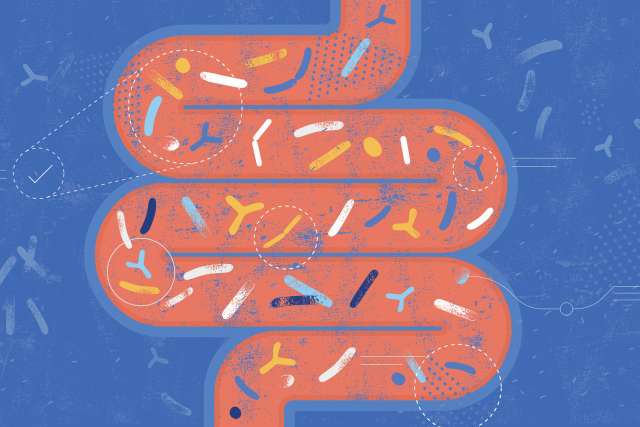Bridget Callaghan, Goodman-Luskin Microbiome Center member and assistant professor of psychology at UCLA, was awarded $3,891,851 from the National Institute of Mental Health (NIMH) to study the microbiota-gut-brain axis pathways associated with depression and anxiety in adversity-exposed adolescents.
This grant builds upon Callaghan’s previous research, which found that children and adolescents who experienced adversity had changes in their microbiome. Callaghan is going one step further, honing in on what specific bacteria species and strains are linked to adversity, and studying how these changes interplay with the brain reward pathway and puts youth at risk of anxiety and depression.
“The potential noninvasive treatments would be probiotics or specialized diets that help to nourish and feed the bugs identified in these pathways,” Callaghan said. “I do not think this is going to replace traditional therapies for mental health, but I do think there's an important role for nourishing our bugs in ways that support mental health.”
Over five years, Callaghan will enroll 300 adolescents ages 12-15 years old. The study population consists of children who have experienced or are currently experiencing adversity, as defined by their exposure to maltreatment. Every 18 months, the researchers will study participants twice: the first visit will conduct clinical assessments and collect stool samples, and the second visit will consist of the participants undergoing a multimodal scanning session and giving blood samples.
Callaghan said the findings may potentially lead to microbiome-targeted therapeutics to treat depression and anxiety issues induced by adversity.



